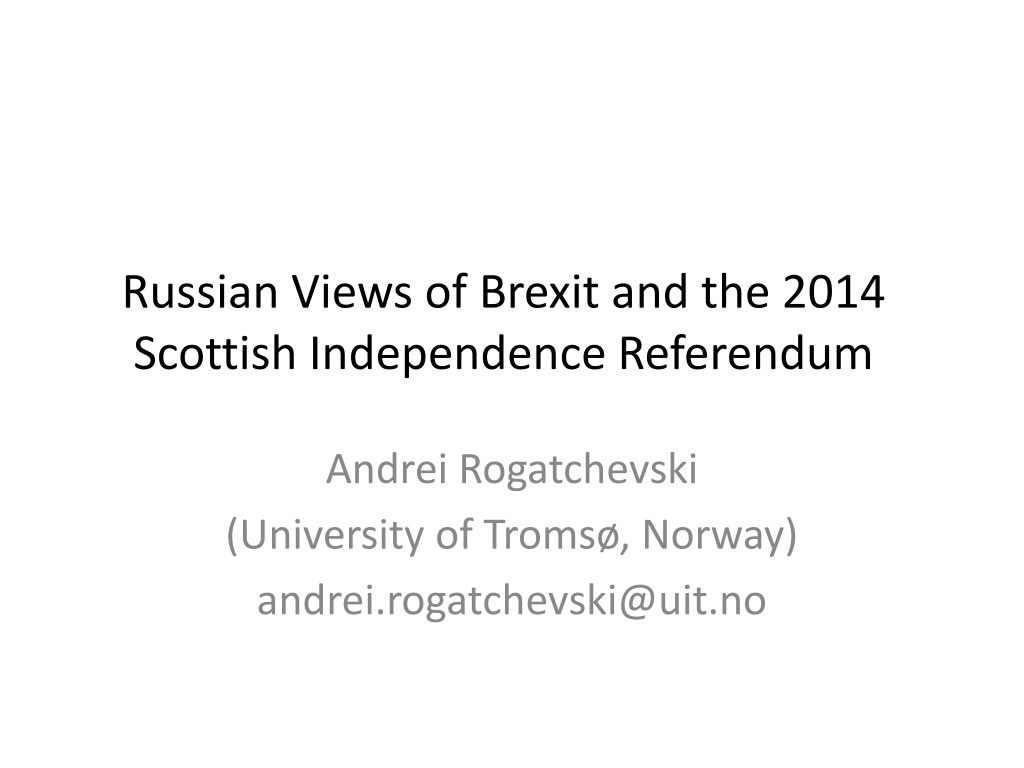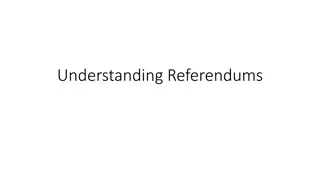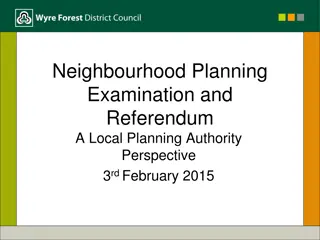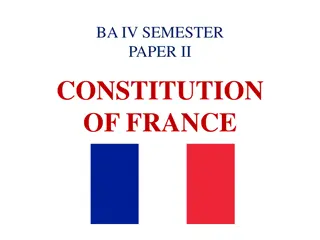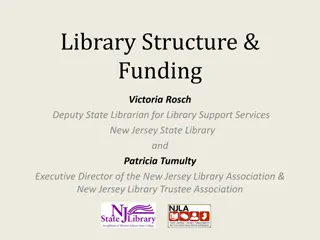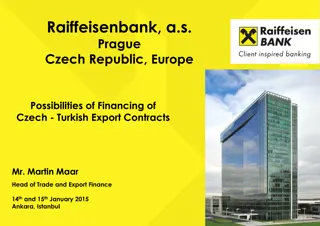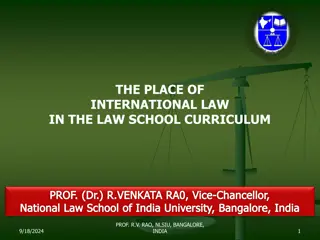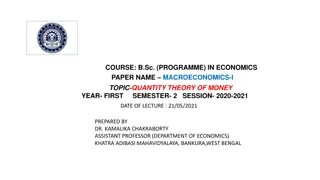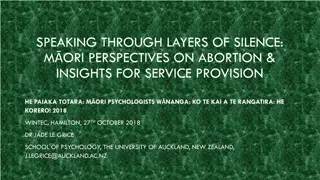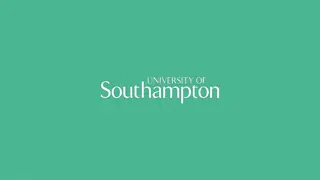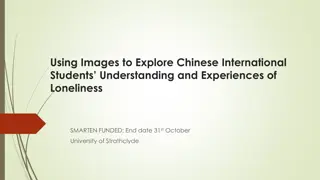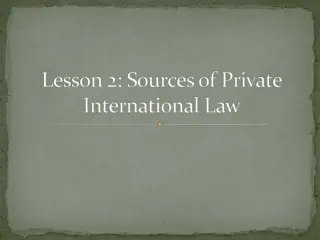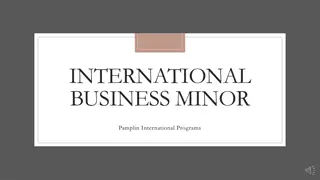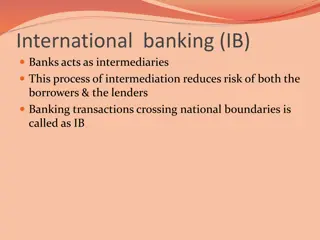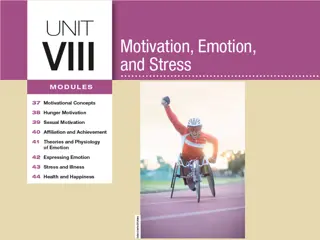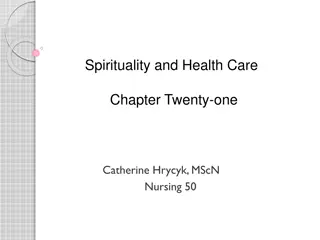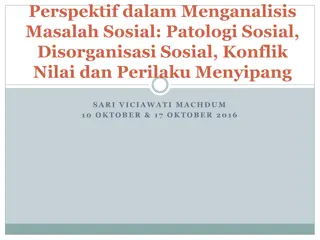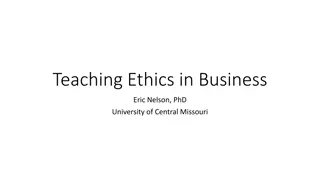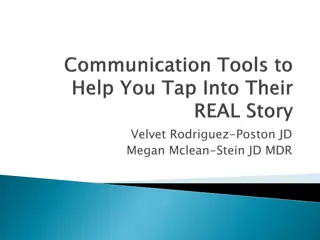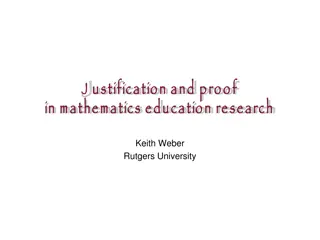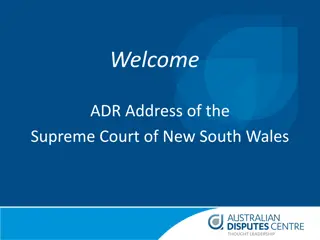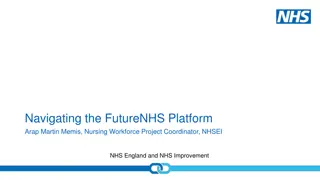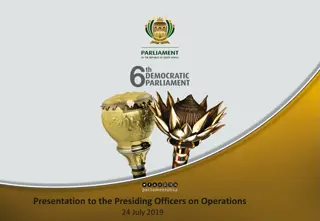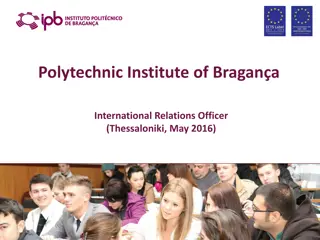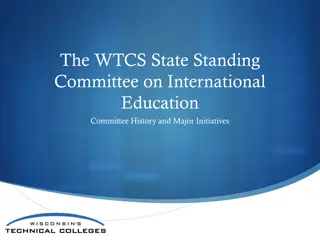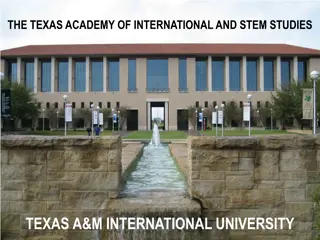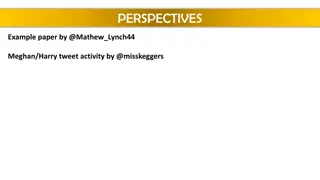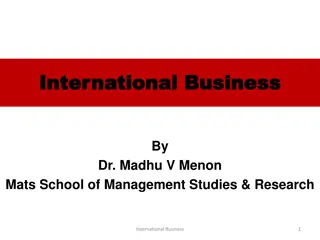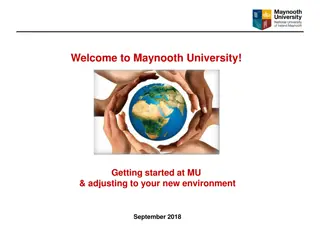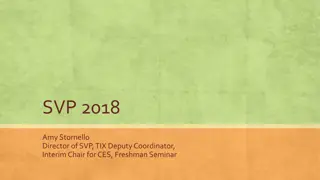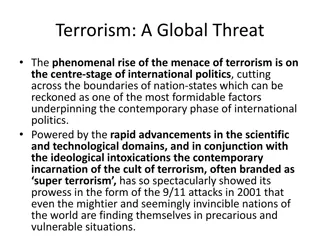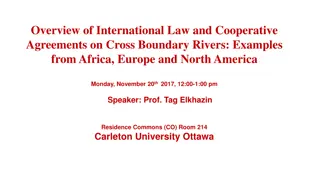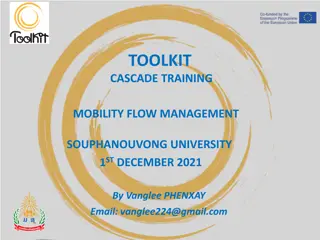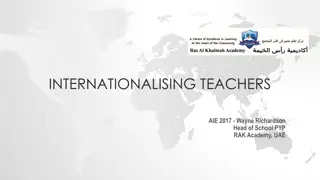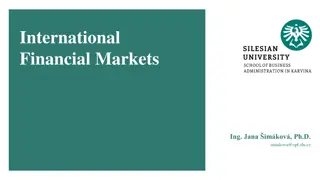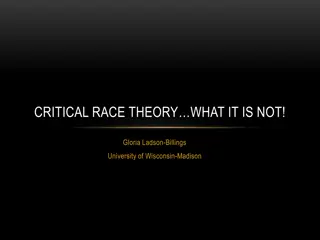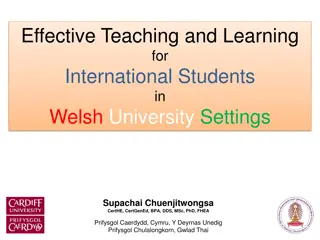Understanding Referendums: Insights from International Perspectives
Explore the concept of referendums, their historical significance, and diverse outcomes worldwide, encompassing pivotal events such as the Scottish Independence Referendum and significant referendums in countries like Quebec, Kosovo, Montenegro, South Sudan, Venice, and Catalonia. Uncover the complexities, implications, and varying public sentiments surrounding independence referendums beyond the UK and the former Soviet Union.
Download Presentation

Please find below an Image/Link to download the presentation.
The content on the website is provided AS IS for your information and personal use only. It may not be sold, licensed, or shared on other websites without obtaining consent from the author. Download presentation by click this link. If you encounter any issues during the download, it is possible that the publisher has removed the file from their server.
E N D
Presentation Transcript
Russian Views of Brexit and the 2014 Scottish Independence Referendum Andrei Rogatchevski (University of Troms , Norway) andrei.rogatchevski@uit.no
Referendum (=plebiscite) is a direct public vote on a specific issue (working definition) Organised since the late 18C, both major and minor (nationally and locally) Especially popular in Switzerland (hundreds) and Australia (dozens) Could be pre-legislative and post-legislative; legally binding and non-binding Qs can be both yes or no and multiple choice Various systems of vote counting to determine the winner (not always by an absolute majority; qualifiers are often attached) Various attitudes towards major referendums at a higher (e.g. International) level (including non-recognition of results) Qs can cover a wide range of issues, from changes in constitution and voting procedures to devolution, territorial unity, currency, national anthem and transport Evoke a range of emotions, from being hailed as a form of direct democracy to being labelled anti-democratic, as well as populist disguises of tyranny (eg in Hitler s case, hence no provision for them at a federal level in today s Germany)
(In)dependence Rererendums outside the UK and the FSU: A selection (I) Austrian Anschluss 1938 (support for reunification , a month after the occupation): yes 99.73%, turnout 99.71% Quebec referendums (1980: secession defeated by 59.56% to 40.44%, valid votes 98.26%, turnout 85.6%; 1995: no to sovereignty 50.58%, valid votes 98.18%, turnout 93.52%) Kosovo 1991, after proclaiming independence in 1990 (for independence: 99.98%, turnout 87% of the required 66.7%; recognised by Albania only); another proclamation of independence followed in 2008, recognised by 110 UN members (but not by Russia, which however has since declared that this sets a precedent for Crimea) Montenegro 2006 (support for independence): yes 55.5%, turnout 86.5% [95.96% chose to remain in Yugoslavia in the 1992 referendum, in which the Q was asked about staying put]
(In)dependence Rererendums outside the UK and the FSU: A selection (II) South Sudan 2011 (support for independence): yes 98.83%, valid votes 99.62% [10 of 79 counties suspended for exceeding 100% of the voter turnout], turnout 97.58% [60% required] Venice March 2014 (unofficial non-binding online opinion poll): yes 89.1%, no 10.9%, turnout 63.2%) Catalonia Nov 2014 ( citizen participation process re. self-determination): 80.8% for the independence, 2,305,290 votes cast, turnout figures not supplied (estimated to be between 37% and 41.6%)
Referendums on Scottish Devolution/Independence 1979 (support for a Scottish Assembly): yes 51.62% [1, 230, 937, or fewer than the required 40% of the total registered electorate of 3,747,112], no 48.38%, valid votes 99.87%, turnout 63.72% 1997 (support for a Scottish Parliament): yes 74.29%, no 25.71%, valid votes 99.5%, turnout 60.43% of 3,973,673 registered voters 2014 (independence): yes 44.7%, no 55.3%, valid votes 99.91%, turnout 84.59% [of the total registered electorate of 4,283,392]
(In)dependence referendums in the USSR/FSU: A selection (I) USSR March 1991: support for the USSR as a renewed federation guaranteeing any nationality s equal rights, yes 77.85%, no 22.15%, valid votes 98.14%, turnout 80.03% of 185,647,355 registered voters (boycotted by Armenia and three Baltic republics, as well as parts of Georgia and Moldova; by then, referendums had been held on re-establishing independent republics of Estonia and Latvia); the country was dissolved by the end of the year, anyway Nagorno-Karabakh Dec 1991: 99.89%% in favour of secession from Azerbaijan; boycotted by 20% of Azeri population; independence recognised by 3 non-UN states Transnistria Sep 2006 (maintaining independence from Moldova + possible future integration into Russia): 98.07% in favour, turnout 78.55%; results not recognised by many countries South Ossetia Nov 2006: 99.88% in favour of secession from Georgia, turnout 95.1%; results are mostly unrecognised
(In)dependence referendums in the USSR/FSU: A selection (II) Gagauzia Feb 2014: closer ties with Russia (98.4%) + independence if Moldova joins the EU (98.9%); turnout over 70%; results illegitimate (Moldova) Crimea and Sebastopol March 2014: 96.77% and 95.6% respectively in favour of joining Russia (reported turnout 83.1% and 89.5% respectively); figures disputed [eg turnout estimated at 30-40%]; results invalidated by a UN resolution Donbass status May 2014 (self-rule in DPR and independence in LPR): 89.07% and 96.2% in favour respectively, reported turnout 74.87% and 75% respectively [figures disputed: 32% and 24% respectively]; results unrecognised by any government, including Russia
Telling titles / Scottish separatism with a Ukrainian accent ( , , 12 Sep 2014) / Scottish referendum on Russia s future ( , , 27 Sep 2014) / Britain is bursting at the seams (5thChannel, TV, St Pete, 1 Oct 2014)
Social media Twitter, , - " " / Scotland has been among top ten Twitter topics for a fortnight ( , - , 15 Sep 2014: http://www.kommersant.ru/doc/2562578) Some Russian nationalists had even fixed yes badges to their Twitter profiles, with one [the internet and media producer, founder of the For Putin movement and a sometime United Russia MP] Konstantin Rykov adding a "Mc" to the front of his Cyrillic surname. (The badge and "Mc" had disappeared by Friday morning) (http://www.theguardian.com/politics/2014/sep/19/russia- calls-foul-scottish-referendum )
Double standards, either way (I) <...> , / The presidium of the Crimean Republic s state council lends its enthusiastic support to the Scottish people on the eve of the independence referendum <...> We are certain that the legitimacy of the Scottish referendum cannot be doubted ( [ ], 12 Sep 2014) [Crimean and Scottish referendums are equally legitimate] Speaker of the Federation Council Valentina Matvienko: , / If Donbas was treated like Scotland, there would not have been any military action (http://www.newsru.com/russia/17sep2014/uk.html ) [Britain is leading by example, Ukraine should pay heed]
Double standards, either way (II) Q: , , ? < > ? / Many of us can t understand why the West criticised the Donbas and Crimea referendums so sharply, while it treated the Scottish one with sympathy. < > Is it because of the so-called double standards? A, by Pavel Danilin, head of the Centre for Political Analysis: , . , , , . . / It is obvious to me that this is about the Anglo-Saxon world s negative attitude to Russia. Had the West not been interested in weakening Russia, the referendums in Crimea and Novorossiya could have been recognised. But the West needs a united Ukraine, Russophobic to the extreme. In this context the will <to leave> expressed by a proportion of its population is <seen as> negligible (Argumenty i fakty, 23 Sep 2014; http://www.aif.ru/politics/world/1344608 ) [Britain is on the Ukrainian, i.e. anti- Russian, side]
Reporting incomplete results Newsru.com, 1stdata reported (19 Sep 2014): yes 47,63%, no 52,37% RBK TV, Clackmannanshire: yes 46%, no 54% (the 8% difference has stuck in some people s minds, even though later reports duly amended the discrepancy to 10%; a narrower margin lends an additional boost to demands of recounting; see also the petitions on change.org with some 100,000 signatures and 38degrees.org.uk with some 65,000 signatures; cf. the alleged 146% turnout in the 2011 Duma election in the Rostov region under Chief of the RF s Central Election Commission Magician Vladimir Churov s watch, see http://lenta.ru/news/2014/12/04/snova146/ )
Claims of irregularities (I) Interfax, 19 Sep 2014, quoting Miroslav Rudenko, a member of the Supreme Council of the Donetsk People s Republic: , , , , / I can t rule out the possibility that the British authorities falsified the referendum results, as the difference in numbers between those who voted for and against independence isn t significant (http://www.interfax-russia.ru/South/special.asp?id=541926&sec=1724 ) RIA Novosti, 19 Sep 2014, quoting Igor Borisov, Chairman of the Council of the Russian Public Institute of Suffrage, head of the accredited mission of RF observers: , <...> / Voting in the Scottish referendum < > doesn t follow the common international rules and principles (http://ria.ru/world/20140919/1024703912.html ) [the counting room is too large to see what is going on; it is not clear where the boxes with ballots are coming from; not enough seals and signatures] RT (the Going Undeground show s presenter): It is normally the sort of turnout you would expect in North Korea. Usually media here would go 'we don't believe it. How can it be nearly 90%? Anecdotal evidence: how can voters be identified without passports?
Claims of irregularities (II) , <...> . / Russian observers claim that < > voters were under serious pressure. Allegedly, there were many irregularities in the Better Together campaign (rbctv.ru, 19 Sep 2014, 16:00) <...> ? <...> , , , . , , , , <...> , . <...> - <...>. , / What s the difference < > between the referendums in Crimea and Edinburgh? < > It is impossible to call the imitation that took place in Crimea and Donbas a referendum. It has been mathematically proven that no one even tried to count the votes in Donbas and the figures were a pure invention, as there were too few polling stations in the large cities. In Crimea, the imitation was more careful, of course (Ekho Moskvy, the Sut sobytii programme with Sergei Parkhomenko, 19 Sep 2014)
(Mostly Pre-)Brexit: Who Cares? (I) The most memorable events in June 2016 (according to the Levada Centre): 51% Russian respondents - the death of 14 children during a storm in Karelia; 26% - Euro 2016; 24% - a (yet another) hike in prices; 15% - Britain s EU membership referendum (https://www.gazeta.ru/social/news/2016/07/04/n_8840183.shtml ) Neil Martin, an English teacher in St Pete: < > , , . < > , / The EU s image in Russia could do with some improvement. < > One of the main reasons why Russians think Britain should leave is refugees < > Russians also ask which role Russia plays in people s considerations <about Brexit> (http://www.bbc.com/russian/blogs/strana_russia/2016/06/160620_blog_strana_russia_martin_eu_referendum ) The multimillionaire Konstantin Malofeev (an alleged financial sponsor of Crimea s annexation, see http://www.compromat.ru/page_34579.htm ): The EU in 2016 is just like the Soviet Union in the 1980s. The bureaucrats sitting in Brussels don t have a clue and don t want to understand what s happening on the ground . A Brexit vote would set in motion the collapse of the entire EU project and help bring about a conservative revival similar to that which Russia has experienced under Mr Putin, according to Mr Malofeev. The EU refused Christianity, and that is why the EU will be destroyed. < > Now we are returning to Dostoevsky s Russia, so you should return to Chesterton s England (http://www.ft.com/cms/s/0/ba26f1ac-20fa-11e6-9d4d- c11776a5124d.html#axzz4DREc3hqX ) The London-based businessman Vadim Malkin on the motivations of some Russia-born UK citizens to vote for Brexit: < >, < >, , , , , , , , , " " / We have to work hard for six years, pass exams to obtain the British passport, overpay our taxes just in case, while these simple guys from the depths of Poland or Romania get a piece of British life for nothing, even though they are not better than us in terms of education, language skills and proximity to British culture (http://www.bbc.com/russian/uk/2016/05/160526_brexit_russians_opinions )
(Mostly Post-)Brexit: Who Cares? (II) President Putin: . , . < > , , , . , . , , . / This is Britain s choice. We haven t interfered in any way, neither have we planned to interfere. < > For average British citizens an explanation is clear, I think: no one wants to subsidize weaker economies, other states and entire nations. It also seems that people are dissatisfied with security issues, which are on the rise because of increased migration. People want to be more independent (https://russian.rt.com/article/309372-rossiya-ne-vmeshivalas-vladimir-putin- prokommentiroval-reshenie ) The PM Dmitri Medvedev: . , , . , , / The volatility of commodities and financial markets has increased. Naturally, we re not happy about it. This has created additional risks for the world economy, which means our economy, too (http://www.novayagazeta.ru/news/1704602.html ) Alisa Grafton, a City lawyer (originally from Russia): , , , / Rumour has it that Russia, exemplified by Putin, has welcomed the referendum s results, hoping that Britain would now become a more flexible business partner (http://www.bbc.com/russian/blog-britain-36703859 ) Business ombudsman Boris Titov: , . - 10 / This isn t Britain s independence from Europe but Europe s independence from the USA. In ten years time one could speak of United Eurasia (http://www.themoscowtimes.com/news/article/russia-reacts-to-brexit-referendum/573389.html ) Schadenfreude?: , - , - . - , , , / What happens in London is insignificant by comparison with what Yeltsin and his liberal academics have done to Russia. We had it much worse: you wake up one morning to be told, without any referendums, that you don t live in your country any longer because it doesn t exist any more (User Andrew commenting on Grafton s blog (http://www.bbc.com/russian/blog-britain- 36703859 ); see also http://www.express.co.uk/news/world/683100/Russia-reacts-Brexit-Putin-victory-Moscow
Conclusions (I) Generally speaking, as far as the British referendums are concerned, some Russians seem to have a difficulty stepping into other nations shoes and empathising; their attitude to the two referendums is heavily coloured by the USSR and FSU s own history and what they perceive as Russia s best (geopolitical and other) interests Yet, in the run up to the 2014 referendum, Scotland has enjoyed a major media exposure in Russia; many more Russians now realise that Scots are distinct from the rest of the UK Not only Russian nationalists are siding with the Yes campaign: cf. the catholic Sergei Buntman s kilt (deputy head of the oppositional Ekho Moskvy radio) At the same time, the run up to, and the results of, the referendum, however, have been used by Russians to suit both the official and the oppositional points of view on the referendums in Crimea and the tearaway regions of Eastern Ukraine The Kremlin apparently saw Scottish independence as a way of justifying its own hasty annexation of Crimea in March, following a "referendum" conducted in just three weeks and condemned by the west, as armed Russian forces and irregulars swarmed over the Crimean peninsula (http://www.theguardian.com/politics/2014/sep/19/russia-calls-foul-scottish- referendum )
Conclusions (II) Moscow also felt that a yes vote would weaken the UK and bring to power a post-independence Scottish government more amenable to Moscow's wishes (ibid). Referendums seem to be the RF s preferred choice of reintegrating sections of the FSU back into its orbit People s will could be manufactured/manipulated as an excuse for (territorial) changes, to give them a semblance of legality By the same token, people s genuine wishes may be neglected for reasons of political expediency or contingency So one cannot help wondering sometimes whether some referendums have a point at all But if people s sentiments are strong and persistent enough, they may eventually yield results
Further Reading Referendums and the European Union : A Comparative Inquiry / Fernando Mendez, Mario Mendez, Vasiliki Triga (CUP 2014; ebook in UiT)
